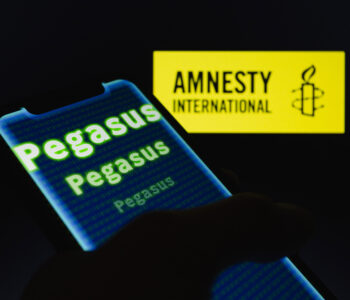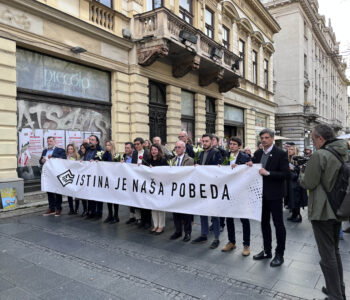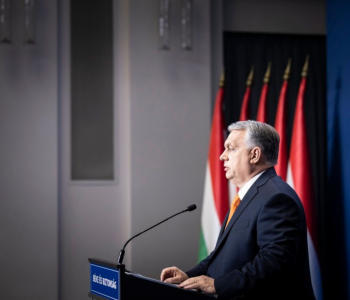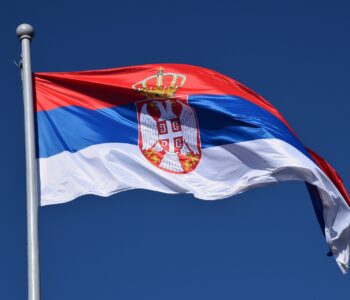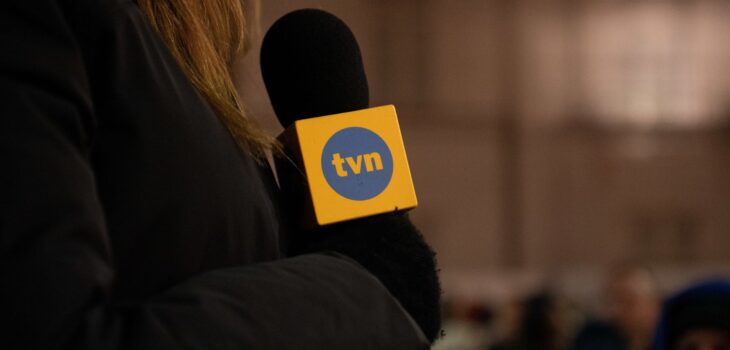
Independent media under attack in Poland: the case of TVN24
In the latest example of pressure on independent media in Poland, U.S.-owned broadcaster TVN24 could lose its broadcasting licence following legislative proposals by lawmakers from the ruling Law and Justice (PiS) party to ban non-European ownership of Polish media.
By IPI contributor Annabelle Chapman
Like its parent company TVN, TVN24 has been 100% owned by U.S.-based Discovery, Inc. since 2015 via its subsidiary Polish Television Holding BV, which is registered in the Netherlands, an EU member state, which means that it abides by Polish regulations.
In the first half of 2021, Fakty, the evening news program broadcast on the TVN and TVN24 BiS news channels, was the most-watched news program in Poland with 2.76 million viewers on average and an audience share of 21.72 per cent.
This put it slightly ahead of Wiadomości, public television broadcaster TVP’s main evening news program, which had an audience share of 20.46 per cent. TVN24’s news coverage has offered viewers an alternative to that broadcast by TVP, which was taken over by the ruling Law and Justice party shortly after winning the elections in 2015.
TVN’s critical news coverage has prompted pressure from the authorities more than once. In December 2017, Poland’s National Broadcasting Council (KRRiT) announced a 1.5-million-zloty (356,000 euros) fine for TVN over its allegedly unbalanced coverage of protests outside the Polish parliament in December 2016. The fine was rescinded in January 2018, following criticism in Poland and abroad, including a statement by the U.S. Department of State warning that it “appears to undermine media freedom in Poland”.
In a separate incident in November 2018, TVN said it was facing intimidation after Poland’s Internal Security Agency (ABW) entered the home of a TVN cameraman and called him to a hearing, accused of propagating Nazi propaganda in a report he filmed on a Polish neo-Nazi group. The hearing was later cancelled, after a strong reaction from the U.S. ambassador to Poland at the time, Georgette Mosbacher, who, in a letter to Polish Prime Minister Mateusz Morawiecki, expressed her “deep concern” over the government’s treatment of TVN.
This time, the incident concerns the right of TVN – whose license ends in September – to continue broadcasting in Poland, with a draft bill submitted to parliament by PiS lawmakers on July 7 proposing to bar companies which are majority-owned by entities from outside the European Economic Area (EEA) from owning more than a more than 49 per cent stake in Polish media. If adopted, Discovery could be forced to sell 51 per cent of its stakes in TVN to comply with the new regulations.
Like in previous incidents concerning TVN, it has been defended by the U.S. On July 8, the chargé d’affaires at the U.S. embassy in Warsaw, Bix Aliu, tweeted: “TVN has been an essential part of the Polish media landscape for over 20 years. Unfettered press is crucial for democracy.”
Latest step in repolonization
The recent pressure on TVN24 is part of a longer-term current in the PiS-led ruling camp’s approach to the foreign-owned media referred to as “repolonization”, which involves reducing foreign ownership of media companies in Poland (the term has also been used by PiS politicians in relation to banks). This is based on the claim, put forward by some politicians in the ruling camp, that foreign-owned media outlets, especially German-owned ones, are deliberately critical of the current government.
Government representatives had alluded to plans to “repolonize” foreign-owned media in the past, but the subject receded from the agenda as the party focused on winning a series elections between 2018 and 2020, before resurfacing during the presidential election campaign last summer. In an interview with the Polish Press Agency published on July 14, 2020, PiS’s chairman, Jaroslaw Kaczynski, said that “media in Poland should be Polish”.
This attitude underlay the acquisition of one of the country’s largest media companies, Polska Press, from German company Verlagssgruppe Passau by state-controlled oil refiner and petrol retailer PKN Orlen, which has led to a purge of editorial management at regional newspapers it owns this year.
In this context, critics warn that the draft bill on foreign media ownership submitted to parliament this month is the latest step in this process and that TVN will be the next casualty.
Marek Suski, who led the group of PiS lawmakers behind the bill, has presented it as an attempt to defend national interests. “We protect Polish interests, even though we are friends with the United States,” he said this month at a meeting of readers of Gazeta Polska, a right-wing weekly.
However, the draft bill has faced criticism from the economically liberal Agreement party, one of PiS’s two junior coalition partners. Its leader, Jaroslaw Gowin, has indicated that Agreement will not back the draft in its current form. Instead, the party will file an amendment that would limit majority ownership of the media in Poland to entities within the Organization for Economic Cooperation and Development (OECD), which includes the U.S., “so that media operating in Poland cannot fall into the hands of capital from countries that are guided by anti-democratic values,” he said.
Gowin’s stance could force the bill’s authors to rethink its content – not just for the sake of relations with the U.S, but also to preserve the integrity of the PiS-led majority in parliament, which has already been threatened by earlier tensions within the ruling coalition. Speaking on TV Republika, a right-wing television channel, on July 14, Suski himself has indicated that it has made him pessimistic about the draft bill’s future.
This article is part of IPI’s reporting series “Media freedom in Europe in the shadow of Covid”, which comprises news and analysis from IPI’s network of correspondents throughout the EU. Articles do not necessarily reflect the views of IPI or MFRR. This reporting series is supported by funding from the Friedrich Naumann Foundation for Freedom and by the European Commission (DG Connect) as part of the Media Freedom Rapid Response, a Europe-wide mechanism which tracks, monitors and responds to violations of press and media freedom in EU Member States and Candidate Countries.



